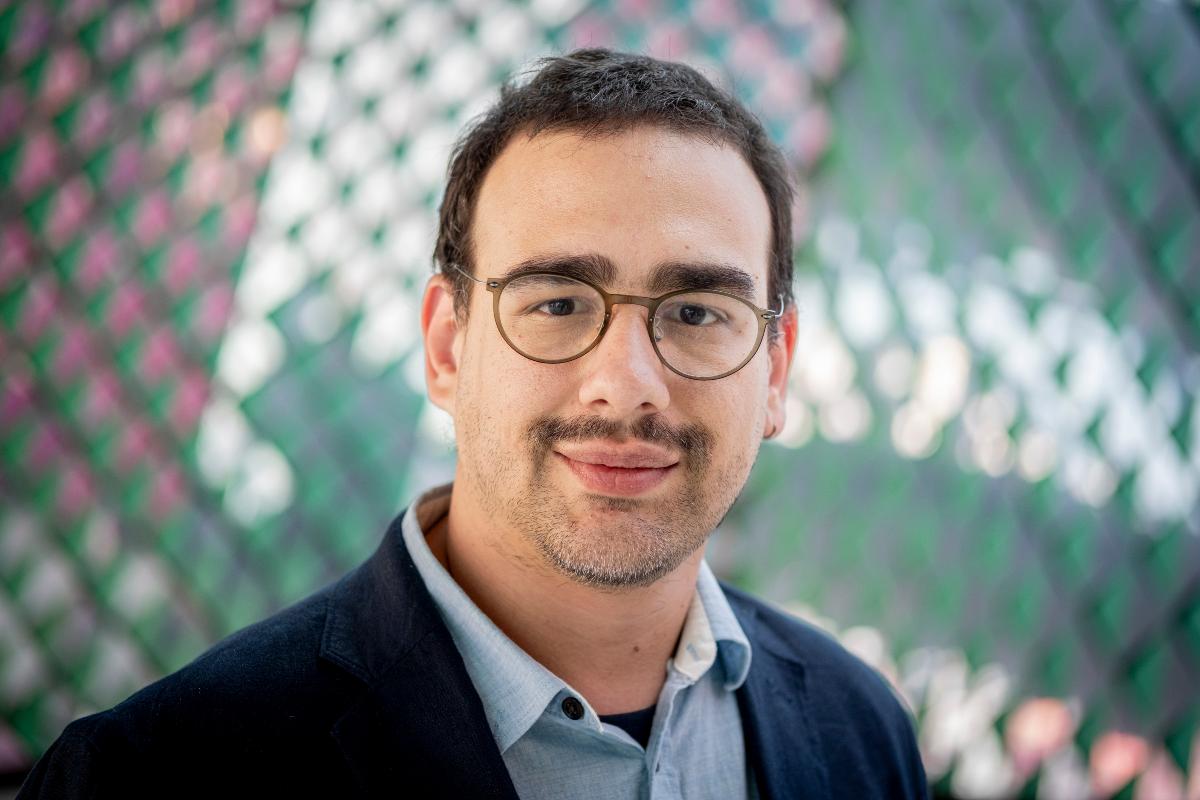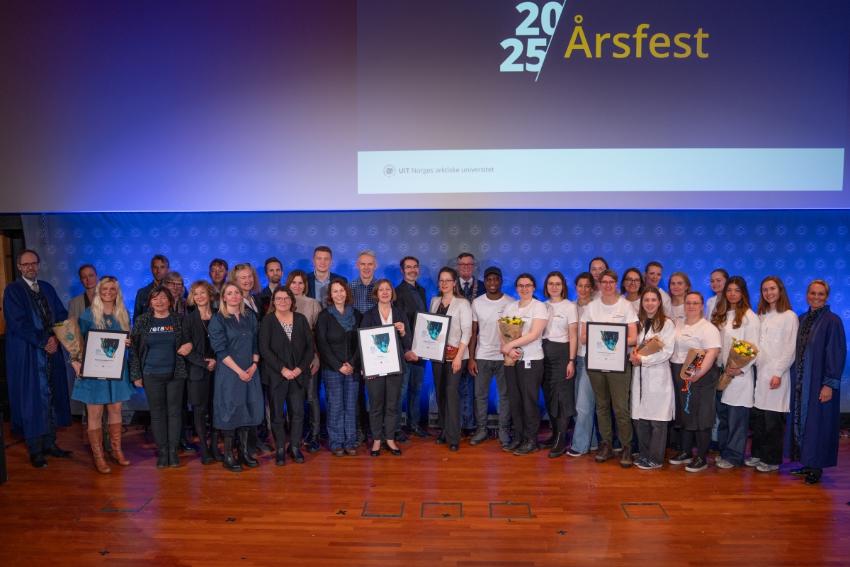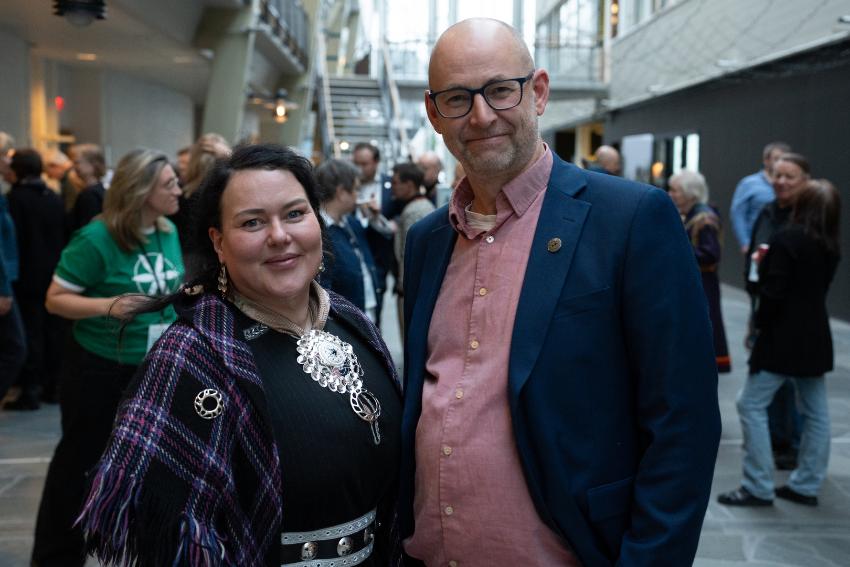Bridging the Gulf Between Climate Rhetoric and Reality
Echoes of COP28.

Last week Nikos Gkikas, PhD Research Fellow at the Norwegian Centre for the Law of the Sea (NCLOS) participated in the COP28 on climate change, held in Dubai. During his journey back to Tromsø and in the aftermath of the Conference, he wanted to put some thoughts on paper about this controversial, but nevertheless very interesting and thought provoking, experience.
A cultural mosaic under a single roof
Climate change transcends national or cultural boundaries of states, peoples, sectors, and human activities. It also transcends the biological lifespan of an individual or a generation, essentially posing an existential challenge to humanity. There is no doubt that the urgent need to address the climate crisis demands global rallying and well-coordinated efforts.
Under the sword of this universal threat, governments, NGOs, stakeholders, civil society representatives and people from every corner of the world are coming together under one roof to devise a battle strategy. But a COP is much more than that; it is a unique opportunity for diverse cultures and worldviews to meet, interact and engage in constructive dialogue.
A quick stroll through the streets, plenaries, meetings, side events, pavilions and restaurants of EXPO 2020 (venue of COP28) would be enough to get a representative idea of the diverse values, languages, aesthetics and cultures that collectively make up the unique mosaic of our planet. And one must admit that this diverse unity in itself something of rare beauty to behold.
Mind the gap between words and actions
Soon, however, in my eyes, the bright colours of the traditional costumes faded away along with my already low expectations of some tangible change. They were lost in the glaring contradiction and irony of the moment. A sky-touching oil city which, with flamboyant emptiness, screams wealth and vanity is now becoming the reference point in the global debate on the climate crisis, just transitions, and the phasing out of fossil fuels!
And while the rhetoric keeps hope alive by playing the game of green and blue words, the gap between spoken ideals and real-world actions remains chaotic. For instance, while the subtle war of words continues with papers going back and forth in order to agree on whether and how to address the elephant in the negotiating room, a few kilometers away, the world’s largest gas power plant continues its business as usual.
Meanwhile, the walls in the venue are filled with beautiful buzzwords and hopeful messages for a sustainable and just future. And yet, behind the walls, a 12-year-old activist (the future just mentioned) gets dismissed and debadged from COP28 because she runs onto the stage of a high-level panel and, with the unpretentious directness of a child, boldly addresses this very elephant: ‘End fossil fuels. Save our planet and our future’.
Those within the blue zone enjoy extraordinary privileges and freedoms such as to use the internet in full, to discuss justice, equality, inclusiveness, participation, and human rights (and to freely disagree), while for those outside these walls such ‘fundamental luxuries’ are a rather distant dream. Well, history teaches us that meaningful change is wrought through deeds, not mere words. And here, I must say that the contradiction between the two is deafening.
Transitioning away from [phasing out] fossil fuels?
Unsurprisingly, the bone of contention at COP28 was how to phrase the need to halt fossil fuels. Even though the phrase finally adopted (‘transitioning away from fossil fuels’) marks an important step forward –acknowledging the major contributor to GHGs at an international regulatory level– still it falls short of the long-demanded call for ‘phaseout’ of oil, coal and gas.
However, considering the powerful interests in conflict at the negotiating table, the economic-political pressures influencing national delegations, and the procedural complexities inherent in holding an international conference of this scale and impact, it is somewhat disappointing but certainly not surprising that a more modest and malleable expression, relatively open to different interpretations, was chosen over a more rigorous statement.
And again, at the end of the day, it is not words but actions that count. And although the inclusion of fossil fuels in the final text is certainly a form of action, the more we continue to drill and burn, the further we move away from our ambitious goals and fine words. So, it remains to be seen in practice whether ‘transitioning away’ refers to fossil fuels, or whether it is just another delicate verbal manoeuvre that actually came to move us away not from fossil fuels but from their long-demanded phaseout.
UiT at COP28 and beyond
In conclusion, I would like to emphasize the significant and manifold benefits UiT - The Arctic University of Norway gained from participating in COP28. Initially, the university’s expert delegates made valuable contributions, each leveraging their epistemological lens to disseminate scientific knowledge and foster academic discourse on various critical issues.
Moreover, collaborative efforts, both within and beyond scheduled events and activities, not only strengthened existing partnerships but also laid the groundwork for forging new international, interdisciplinary and transdisciplinary collaborations between UiT and various institutions worldwide.
Finally, the ‘Just North and Beyond’ joint pavilion (a collaboration between UiT, the Technical University of Michigan, and the University of Sussex) stood out as a central, if not the sole, focal point for Arctic concern –a region notably underrepresented at COP28. With that said, I would like to express my desire to consolidate and enhance the university's presence in future COPs and other pertinent international initiatives.
Kortnytt fra Det juridiske fakultet



